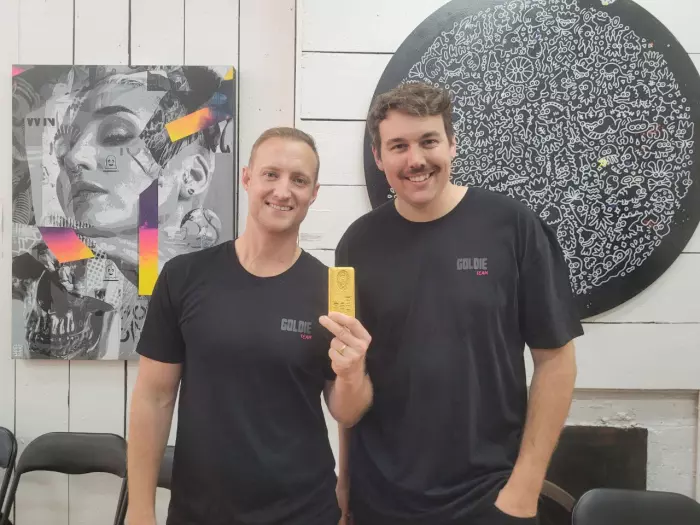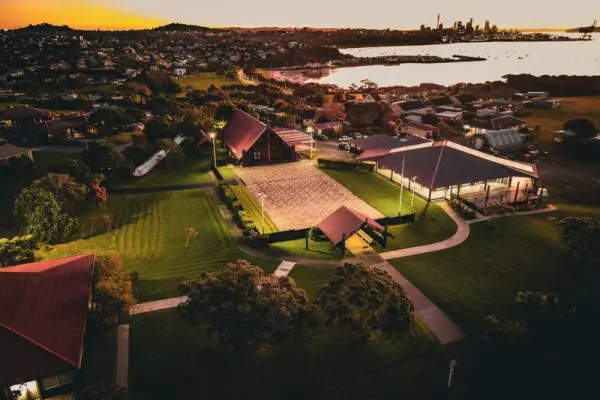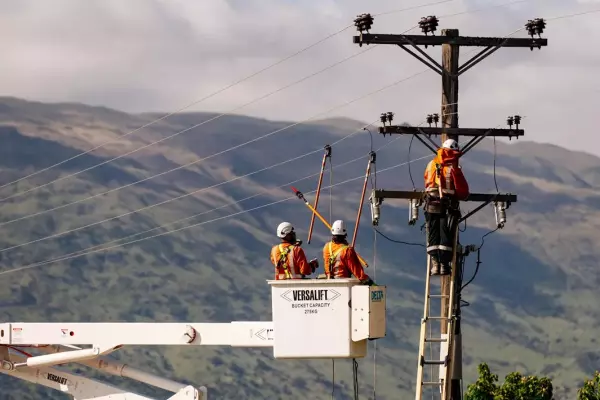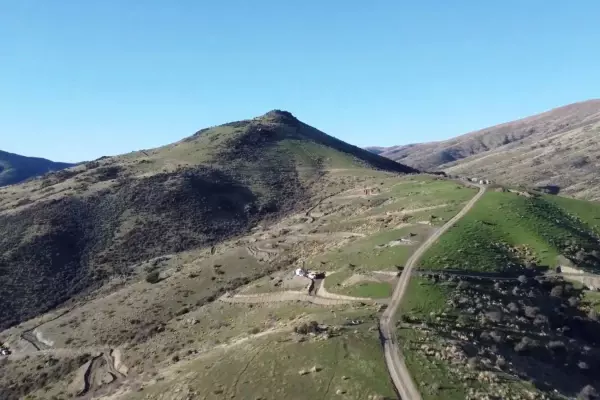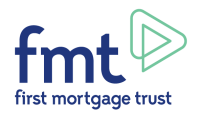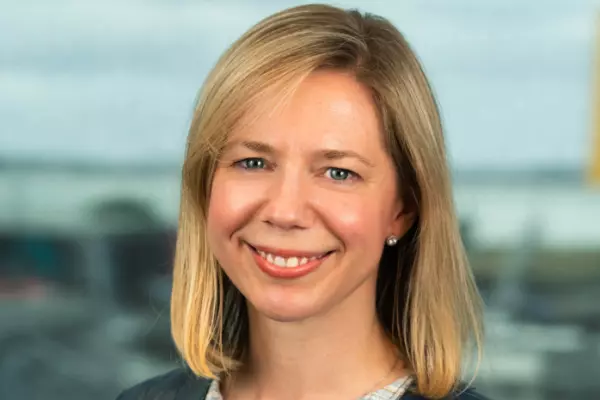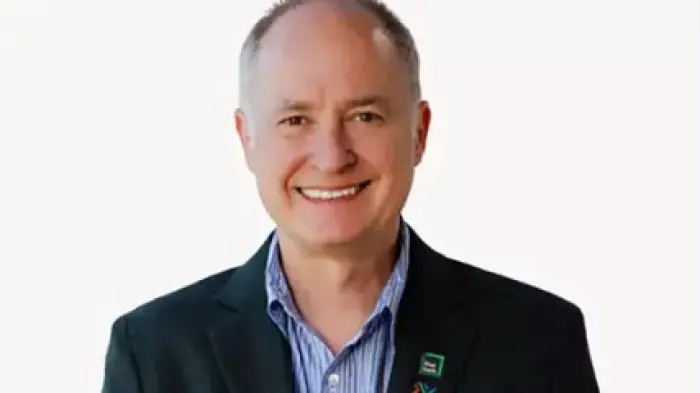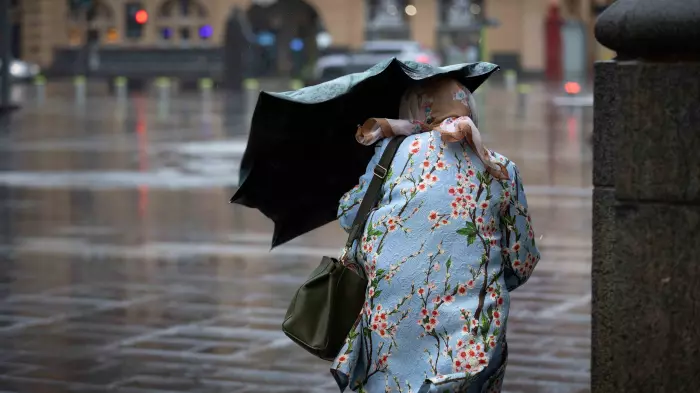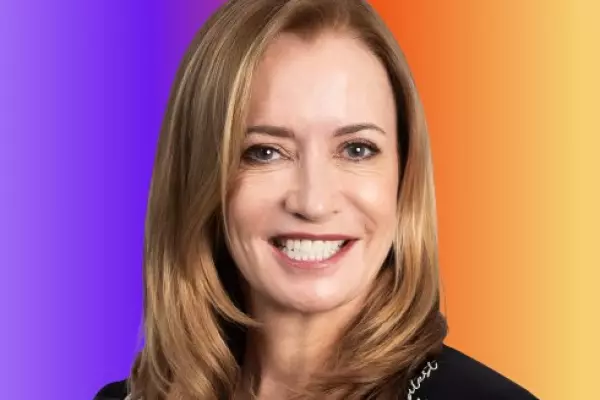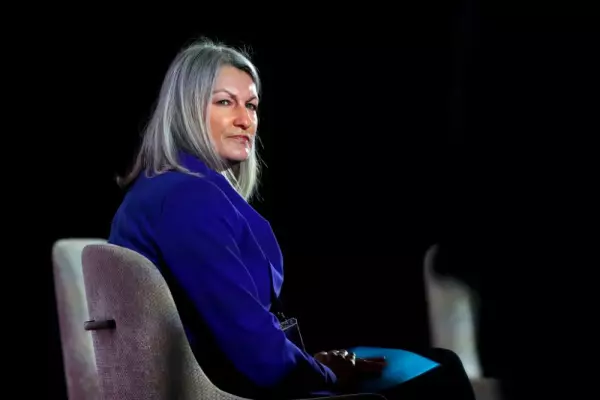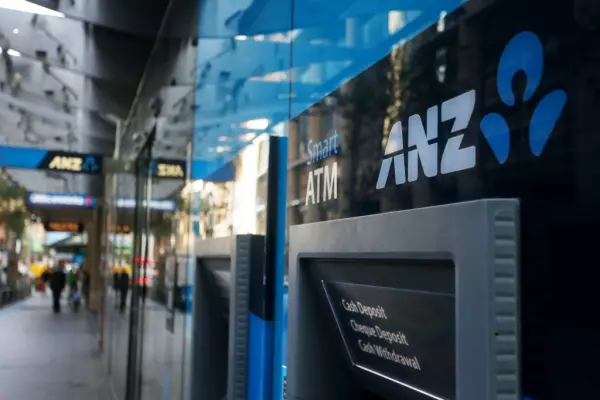What do CF Goldie, Mick Jagger and gold have in common?
The founders of a new investment startup say these are real assets they want to invest in.
Goldie, an ambitious New Zealand fintech with the goal of making investing more accessible, hopes to disrupt the “outdated” investment industry.
Goldie co-founders Glen Jenkins and Cam Maclachlan said their business can change the face of ownership and, with enough support, increase the number of investors in NZ.
Three years ago, said the pair, they wanted to solve a problem they faced as everyday investors.
“We wanted to buy gold, but it was instantly clear the process was painfully slow, and we wouldn’t get a fair rate unless we had enough money to buy a one-kilogram gold bullion, valued at about $105,000 today, which isn’t possible for most Kiwis like us.”
MacLachlan said their first ‘aha’ moment was being heavily penalised with retail margins on both buying and selling.
“That was wrong and outdated, so we set out to change that and disrupt the industry.”
MacLachlan said the real asset market is a space that requires a certain amount of wealth to invest in.
“Everyone should have access to the same investment opportunities irrespective of their status or wealth,” Maclachlan said.
Other investments
Jenkins said they both have Sharesies accounts and have dipped their toes in cryptocurrency, too.
"I own a property, and Cam owns a few cows, but real assets like gold, art and collectibles are something we didn't have the means to access.
"They’ve always been unattainable for us, and we can’t wait for the day when we can own a share in a Banksy, a Warhol, Michael Jordan's rookie card or a vintage car."
At launch, Goldie will start by investing in 1kg gold bullion bars and fractionalise them.
One kilo of gold is broken down into 10,000 pieces, and investors can then buy shares in these pieces of gold at a minimum of $10.
A company Maclachlan and Jenkins have set up will own the gold bars, and investors who sign up will own shares of that company.
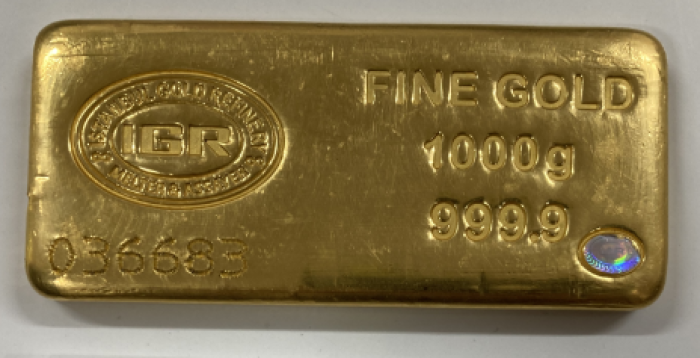
A gold bar was on display at the Goldie launch in Auckland on Wednesday. (Image: BusinessDesk)
Jenkins said Goldie investors will save up to 57% of the current price of gold because they’re buying the larger bars.
He said traditional retailers in NZ mark up the costs and add fees, but their new venture will buy the bars, fractionalise them and pass on the cost savings to their investors.
The co-founders say the gold will be bought through a regulated channel. They're using the alternative share market, Catalist.
The gold would be bought at a fair price, with no middleman, because Goldie links the global spot price from the United States directly through to investors on the platform.
Jenkins said there are commission charges on purchases, at 0.89%, and on sales, at 0.5%.
Once an investor has a qualifying amount of over $300, there is an annual storage and insurance fee of 0.33% of the value of the investment, with a minimum of $1.50 per month, he said.
The pair are also partnering with NZ Vault, which will vet, purchase, insure and store the gold in Wellington.
Maclachlan said in the app, investors can track where their gold is, and while there will be opportunities for investors to visit the vaults.
There is nothing quite like holding a kilogram of gold, he said.
They have a long-term vision of investing in art, too – with an eye already on a signed Mick Jagger piece by famed artist Warhol.
Door open to real assets
Maclachlan said although they had focused on building the tech to support fractional investment in gold, their next biggest realisation was that their platform opened the door to any real asset.
The founders say eventually, they would like to bring home taonga [treasures] to NZ.
Maclachlan recalled a poignant experience recently of a whānau [family] that NZ artist CF Goldie had painted of their tīpuna [ancestor].
He said he sympathised with the family’s pain when an overseas buyer purchased the painting, taking their loved one away from them.
Maclachlan hoped that eventually, the Goldie community would help bring these treasures back home to NZ to reconnect whānau.
“That’s our hope; that’s our long-term vision.”
BusinessDesk has contacted the Financial Markets Authority (FMA) to ask about the regulations the startup has to comply with and is awaiting a reply.
This story has been changed to correct the spelling of Cam Maclachlan and to take out that tours of the vaults would be an extra cost. They are free.


